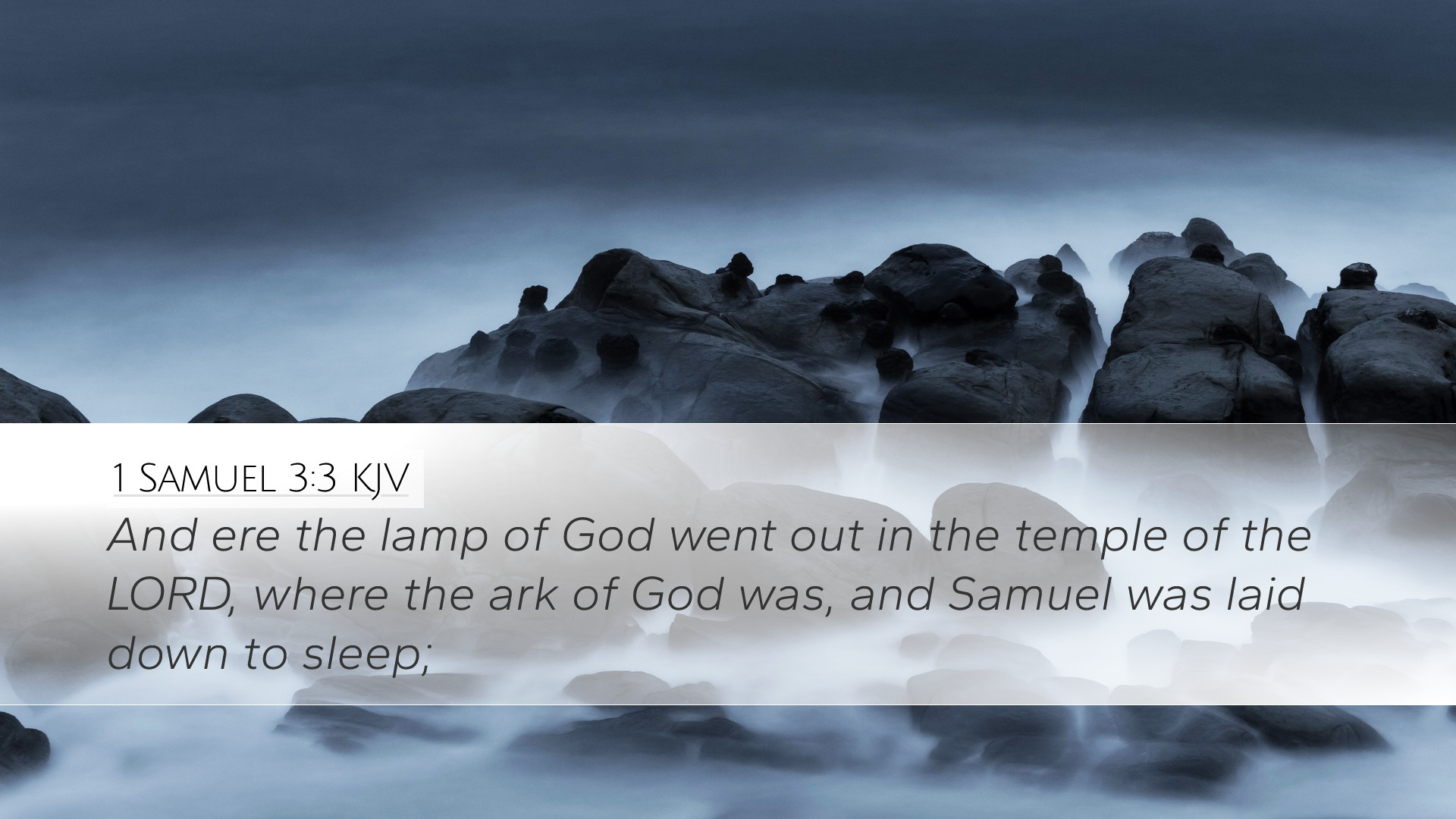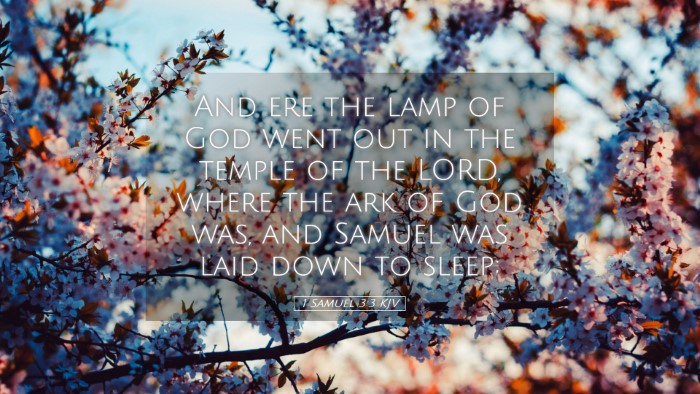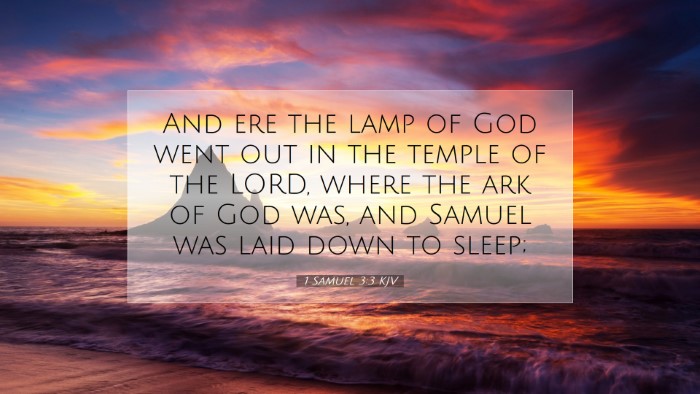Bible Commentary on 1 Samuel 3:3
Verse: 1 Samuel 3:3 - "And ere the lamp of God went out in the temple of the Lord, where the ark of God was, and Samuel was laid down to sleep."
Contextual Background
The book of 1 Samuel is a pivotal text in biblical history, detailing the transition of Israel from a confederation of tribes to a centralized monarchy. The early chapters focus on the birth and calling of the prophet Samuel, who would play a crucial role in this transition.
Commentary Insights
Matthew Henry's Commentary
Henry notes that this verse sets a significant scene, occurring in the temple of the Lord. The term “lamp of God” is emblematic of the light of divine presence, a symbol of guidance and illumination for the people of Israel. The lamp was to burn continually, and its dimming suggests a period of spiritual decline and neglect within the priesthood.
Furthermore, Henry emphasizes the importance of Samuel's position as a servant in the temple, highlighting his innocence and willingness to serve at a young age. His sleep is not merely physical but represents a state of spiritual anticipation, ready for God's call.
Albert Barnes' Notes
Barnes draws attention to the phrase "ere the lamp went out," which serves as a powerful metaphor for the spiritual state of Israel at this time. He points out that the lamp, which represented divine presence and guidance, was failing. This indicates that the nation was about to enter a period of great change.
Barnes also talks about Samuel's role as a young boy sleeping in the temple, a poignant symbol of a new generation that would rise amidst spiritual darkness. He suggests that the minor details of the setting serve to underscore the significance of the calling that Samuel is about to receive. The contrast between the failing lamp and the faithful servant foreshadows a reawakening under Samuel's leadership.
Adam Clarke's Commentary
Clarke elaborates on the significance of the ark of the covenant being in the temple at this time. The proximity of the ark, which housed the tablets of the law, symbolizes the covenant relationship between God and Israel. He highlights the irony of the situation—while the ark represents God's presence, the lamp signifies the spiritual lethargy and corruption of Eli's sons, who were neglecting their priestly duties.
Clarke also points out that the nighttime setting is crucial. It is in the quiet and stillness that God often calls His servants. There is a divine strategy at play where God chooses to speak in the darkness, a moment of stillness that prepares Samuel for his critical mission.
Theological Implications
This verse serves as a reminder that God often speaks in times of spiritual decline. The failing lamp is indicative of the condition of the Israelite people, yet it is within this context that God chooses to raise a prophet. This illustrates God's sovereignty and His ability to call and equip leaders even when circumstances seem dire.
- Divine Call: Samuel's preparation highlights God's initiative in calling individuals to serve Him, regardless of their age or background.
- Spiritual Vigilance: The imagery of the lamp signifies the need for spiritual alertness and the presence of God's light in our lives.
- Hope in Darkness: Just as God calls Samuel, believers ought to remain hopeful that God can still work profoundly in dark times.
- Covenantal Relationship: The ark's presence serves as a reminder of God's unending covenant with His people, offering context for their need for repentance.
Conclusion
1 Samuel 3:3 is a multilayered verse rich with implications for understanding God's interaction with humanity. The symbolism of the lamp and the condition of the temple serve as poignant reminders of both accountability and hope. As believers and servants of God, like Samuel, we are called to remain vigilant, ready to hear and respond to His voice, especially in times when the spiritual light may seem dim.


